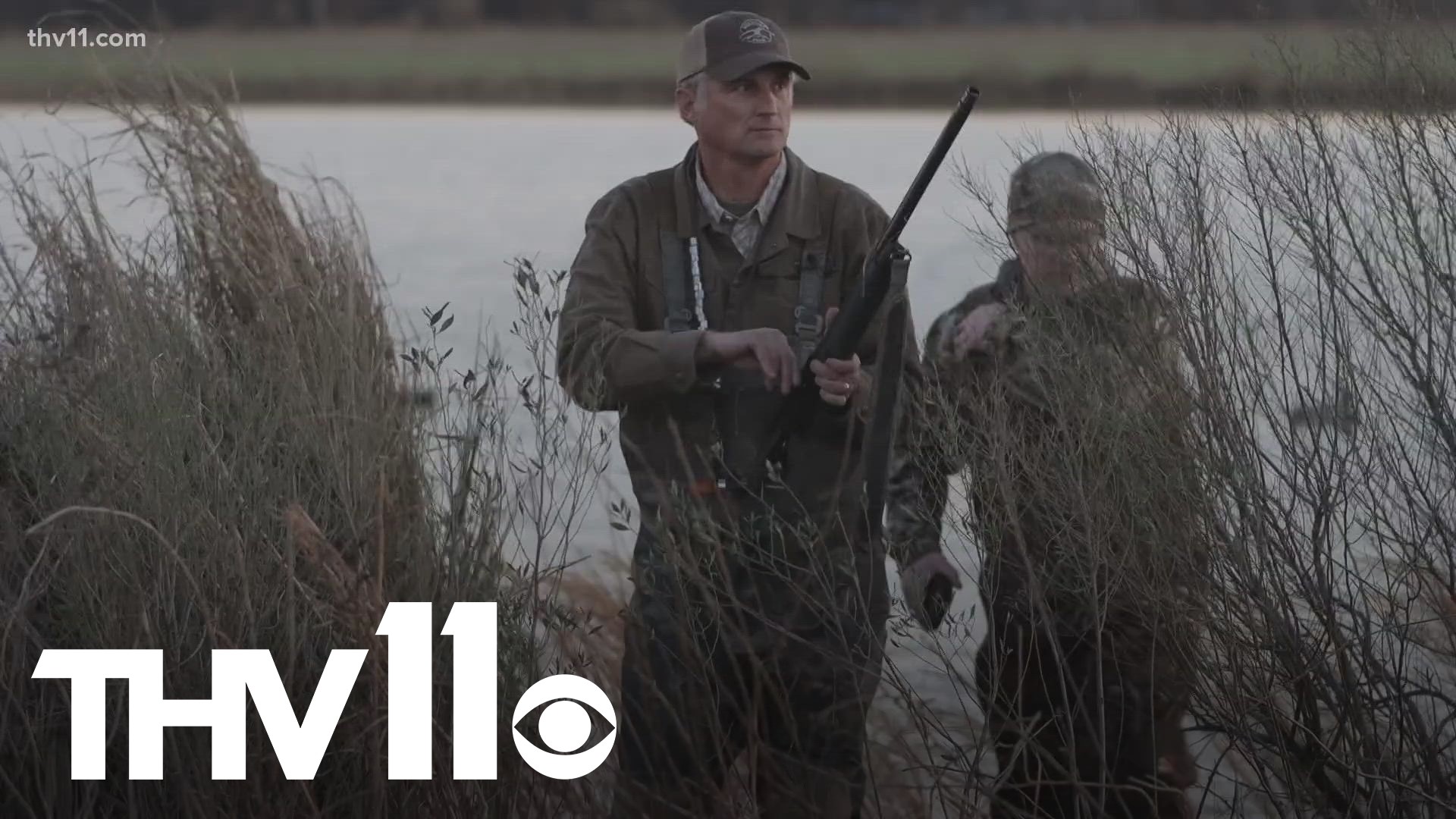ARKANSAS, USA — No other place on the planet offers a more ideal home for wintering waterfowl than Arkansas.
Given our near-perfect positioning in the Mississippi Flyway and historically abundant habitat, ducks have been spending their winters in the Natural State for centuries.
When ducks seek out a winter home, they look for two things: a meal to eat and a place to sleep.
The rice fields and bottomland forests of the state’s Delta region offer plenty of food for the birds, and the flooded wetland provides a perfect habitat.
This dynamic combination of natural resources draws millions of ducks to the state every year, ultimately resulting in a $70 million economic impact annually from hunters both local and around the world.
Arkansas’s unique ability to cater to wintering waterfowl has cemented our state’s identity as the duck capital of the world.
However, after several tougher-than-normal seasons, many duck hunters have shared a growing concern for the future of the cherished tradition.
“I don't think duck numbers are what they used to be just by observation alone, just by seeing them with my eyes and seeing them in places they used to be in, and where they're not there anymore,” said duck hunter Brent Birch.
Birch is a lifelong duck hunter and author of The Grand Prairie, a book that chronicles our state’s deeply rooted duck hunting history.
“Something happens with the habitat itself that changes where the ducks go. I just don't think we're seeing the numbers. The habitat is better north of us. I don't think that's the only reason, I think part of it is we're not providing the habitat like we used to in the state,” Birch said.
Weather and climate also play a central role in the story of duck hunting.
When locations north of Arkansas freeze over, limiting food and habitat, ducks migrate south.
Our plants' changing climate has resulted in warmer winters, especially north of Arkansas.
Scientists like Dr. Ryan Askren, a waterfowl ecologist with Five Oaks Age and Research Center, agreed that warmer temperatures north of us don't give ducks much of a need to travel to Arkansas.
“If there is a strong warming trend in this region, we definitely could see a shift in ducks further north, which is hard to disentangle from other landscape level changes, but definitely could be impacting migration,” Askren said.
Although it’s happening less frequently, winter conditions do force ducks to migrate south throughout the course of Arkansas’s 60-day duck season.
The problem we’re now facing? Our ability to meet those two basic needs-- food and habitat--has been changing.
For example, this most recent duck season began with severe drought across much of the state— which concerned scientists and hunters alike.
“A lot of the whole region level habitat that's provided is based on rainwater during the fall. And that's huge," Askren said. "If ducks are coming here and there's no habitat for them, especially once we start hunting them, there's just not much of a reason to stay here."
Much to the delight of hunters and ducks alike, historic rains brought abundant waterfowl to the delta mid-season.
While this was certainly beneficial, the challenges facing the sport are far greater than short-term drought— specifically, food sources for these birds.
Advancements in farming technology have resulted in much more efficient agriculture practices, especially when it comes to rice, a favorite food for ducks.
These efficiencies have left less food on rice fields than ducks have come to expect.
“We're farming earlier and earlier. Unfortunately, rice is a huge food source for mallards and a lot of other species of ducks. We’re getting a lot more efficient with farming, which just means there's less and less food for ducks,” Askren said.
Hunters like Birch understand the benefits of more efficient farming practices but also recognize the impact it’s had on the tradition he’s loved since he was a child.
“I understand farmers have to make a living and they have reasons why they do what they do. But some of that has been to the detriment of waterfowl,” Birch said.
While rice is undoubtedly one of the most popular food sources for ducks, they also like to dine on red oak acorns found in flooded timberland.
For years these bottomland forests have been artificially flooded to create a habitat for ducks.
In recent years scientists have learned that flooding these areas is causing more harm than good— a factor that’s directly reducing the number of acorns available for ducks.
“We’re flooding earlier than historically these areas would have been naturally, and we’re leaving water on too long,” Askren said.
Without a doubt, Arkansas has a long history when it comes to duck hunting.
Much of the state's identity is centered around the incredible resources our state has to offer ducks, though the challenges threatening our reputation continue to mount.
Changes to our climate, enhanced farming practices, and outdated management practices are all factors putting our state’s favorite pastime at risk.
Despite that, hunters and scientists alike agree — what’s at stake is worth fighting for.
“We need to care for these ducks. If we're going to keep them here, we really need to be passionate about managing the habitat well,” said Askren.

